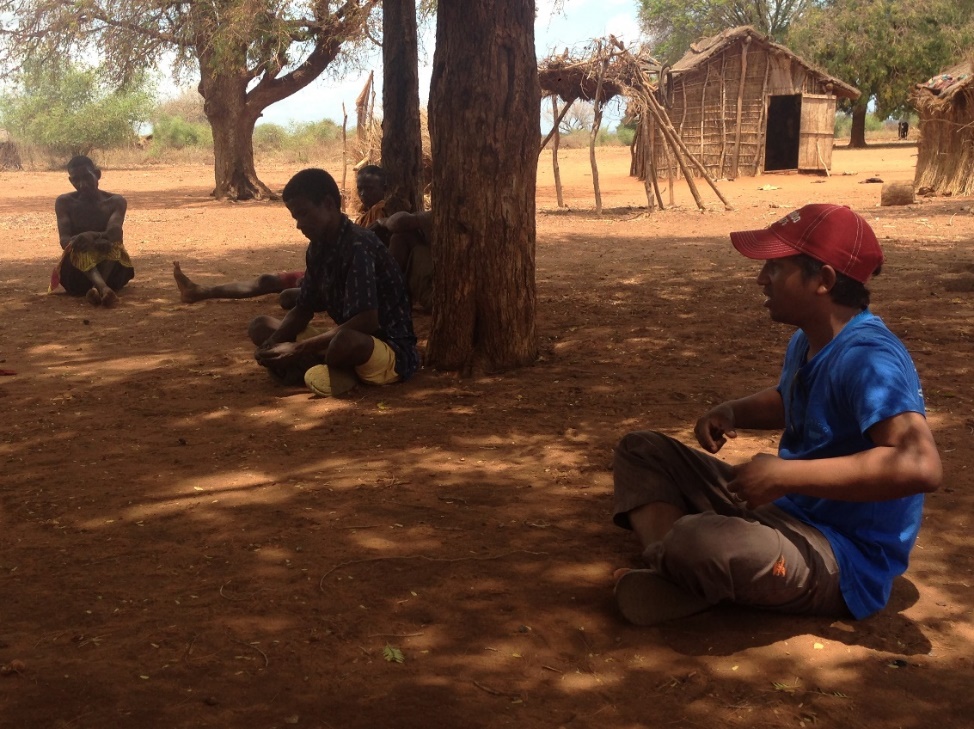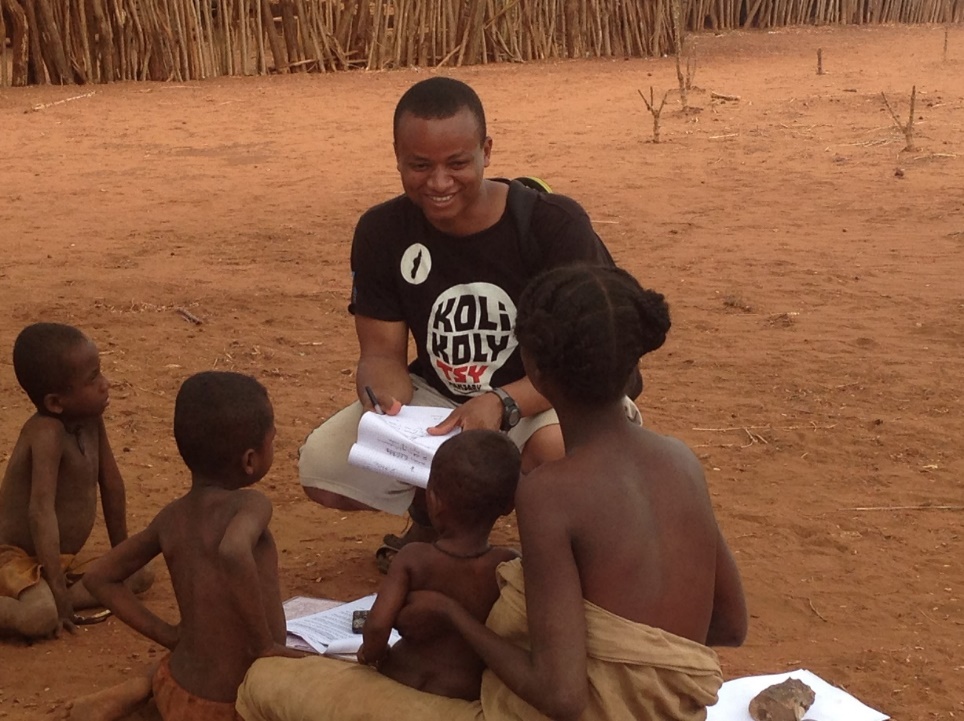
Dr Sedera (DLP) explaining the assessment and the supervision objectives to local leaders in the village of Andarvitraza Ankilaoka Toliara.
The USAID-supported Maternal and Child Survival Project (MCSP) was commissioned to support the Malagasy Ministry of Public Health through the DLP (Direction de la Lutte contre le Paludisme – National Malaria Control Program) to conduct an assessment on experiences and perceptions on care seeking for febrile illness among caregivers and providers, in eight districts of Madagascar. The overall objective of the assessment was to identify gaps, attitudes and practices that may prevent timely care-seeking for febrile illness (within 24 hours of onset of fever) in the formal system, and /or that could lead to non-compliance with national guidelines for malaria treatment in Madagascar.
The assessment was approved by the Ethics Committee of the Ministry of Public Health in May 2017 and the data collection was completed in October 2017. The success of the assessment can be partly attributed to the involvement of the DLP throughout the assessment process.
According to Dr. Sedera Mioramalala, Researcher at the DLP and co-investigator for the assessment, “This assessment is a snapshot of a reality of malaria at a specific time, which should be updated to identify transformations in a sector where situations are changing rapidly.”
From the development of the concept note, the DLP through its Director, Pr Arsene Ratsimbasoa, was strongly involved in sharing his expectations and needs as well as his experiences.
He appointed Dr. Sedera to be the DLP’s focal point that followed the study. The development of the protocol has been the subject of lengthy discussions and close collaboration between MCSP and DLP teams. These exchanges, which reflect the complexity of the subject, have focused on the scope of the study, research methodology, selection of sites, sampling, and the formulation of questionnaires.
DLP involvement continued throughout the process. Dr. Sedera presented the research protocol to the ethics committee, and also participated in the selection of the research firm that collected the data. He was able to support the training of data collectors conducted by the firm and participated in the supervision of the implementation of the study. His role was to ensure compliance with the protocol and the quality of research, including the verification of the authenticity of the information collected by the data collectors, the supervision of the interviewer on correct use of the questionnaire and the organization of briefing and debriefing sessions.
The effective participation of the DLP will be equally important for the dissemination and use of the results for strategic decision making, especially for Madagascar’s update of the Malaria Control Strategic Plan.

